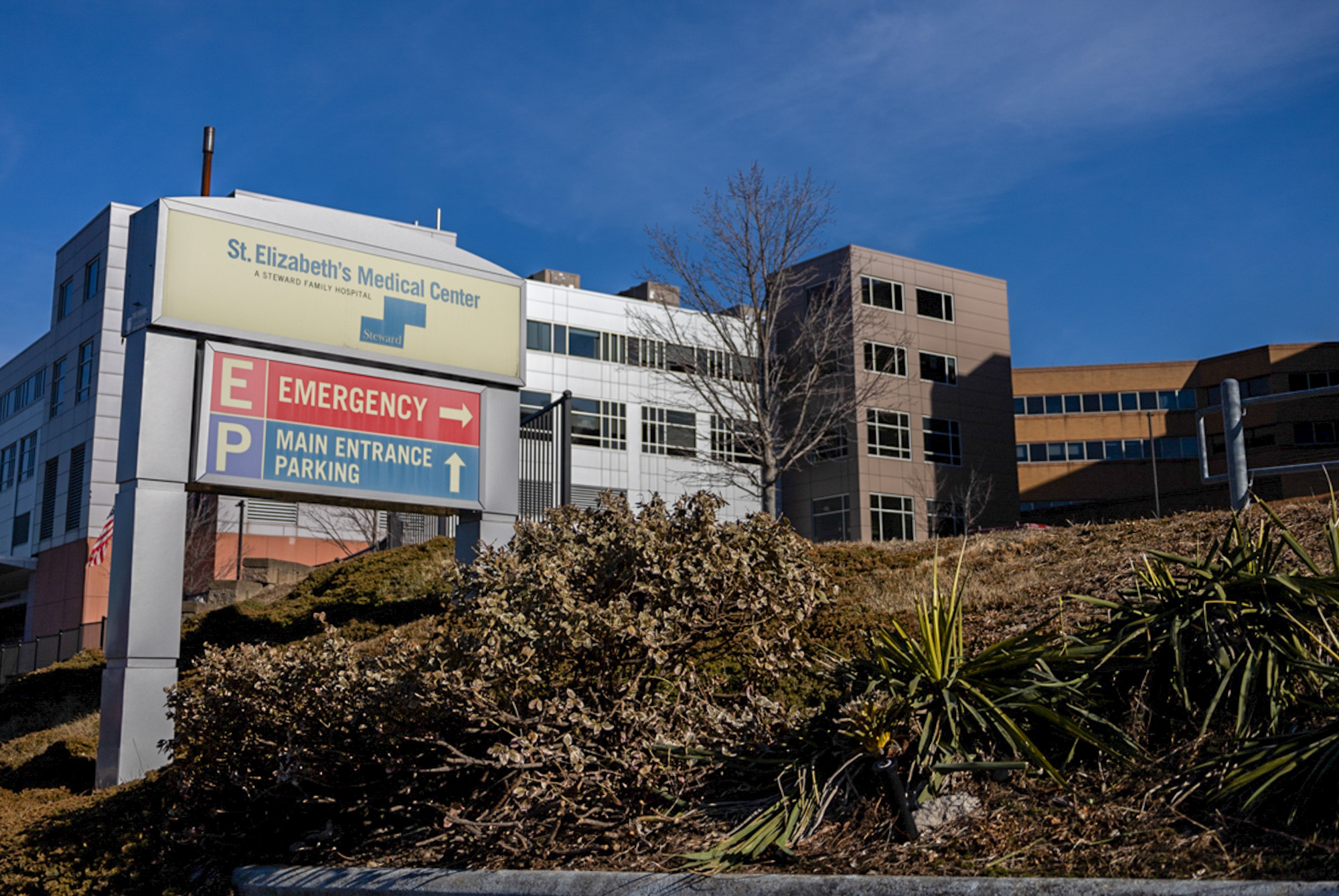Boston City Council heard from health experts and employees of Steward Health Care in a hearing on Thursday, during which Steward was criticized for disregarding patient and staff needs and potential hospital closures. Solutions were few due to a lack of information provided by Steward.

“We can’t have any more talk about closing hospitals, or diminishing services. There’s been enough of that,” said Ellen MacInnis, a nurse at St. Elizabeth’s Medical Center, a Steward-run hospital in Allston-Brighton, during the hearing. “We need to get on with the hard work of making sure we continue to take care of everybody.”
Since January, Steward Health Care, a physician-led, private, for-profit health care system, has faced growing criticism for its growing financial stress first reported by the Boston Globe. St. Elizabeth’s Medical Center in Brighton, and Carney Hospital in Dorchester, are two hospitals where communities have been affected by Steward’s mismanagement.
Staff from Carney Hospital, a Steward-owned hospital in Dorchester, spoke in the hearing along with MacInnis. They expressed a shared desire to continue serving their community, saying that many patients have relied on Carney for their medical care for years.
“I joined this Carney family in 1979 … when I started here, we were a 400-plus bed hospital,” said Maureen Rate, a Dorchester native and Carney staff member. “Now, we’re maybe a hundred-bed hospital, but our hundred beds are so important to this community, it would just be devastating to see them go.”
Steward’s mismanagement has led to fallout beyond hospital doors. Community nonprofits have similarly suffered from the lack of promised funding, according to a report by WGBH.
At a public hearing with the Boston Planning and Development Agency in 2019, staff at St. Elizabeth raised issues concerning their lack of necessary medical supplies and faulty infrastructure, according to an email from Anna Leslie, director at the Allston Brighton Health Collaborative. The St. Elizabeth’s leadership at that time seemed noncommittal on helping the facility, Leslie said.
St. Elizabeth’s Medical Center sponsors the ABHC through a food voucher program that collaborates with a local farmers market. ABHC steering committee member Jen Cruz said that funding for the vouchers was promised for three years, but ABHC just recently received funds promised for 2022 along with this year’s funding.
“When [the money] just doesn’t show up, it’s stressful,” Cruz said. “You can’t just have a fundraiser and ask community members … to fill in the blanks.”
Health experts also spoke to council members at the hearing about the public health concerns to the Allston-Brighton and Dorchester communities, in the event that St. Elizabeth’s and Carney close and another provider cannot be instated.
“Without these two hospitals, the patient population would shift to other hospitals,” said Dr. Bisola Ojikutu, executive director of the Boston Public Health Commission. “This could result in increased transport time for patients, and a domino effect … leading to prolonged turnaround times for our ambulances.”
Ojikutu emphasized the importance of continuity of care for current patients, and that capacity issues faced by hospitals could be exacerbated by system adjustments.
Disseminating information and problem-solving has proven difficult while Steward Health Care and the state lack transparency, both Ojikutu and Leslie said.
Steward responded to Governor Maura Healey’s letter, which demanded the company provide the state with their full financial records, with documentation Healey’s administration says is incomplete, according to the Boston Globe.
Alan Sager, a Boston University professor of health law, policy and management, criticized the government for “no accountability” regarding their handling of Steward’s financial troubles and the lack of stability for hospitals and healthcare in times of crisis.
“State government … needs to put its arms around health care problems,” Sager said during the hearing. “This is the easiest problem to fix in the United States because it’s the only one we spend enough money on already.”
Governor Healey is continuing to push for financial records from Steward, and is working on the state’s “orderly transition away from Steward,” according to WHDH.
Other criticism, from Sager and others, centers on the for-profit nature of Steward Healthcare, meaning it is aiming to profit alongside providing care.
“In the absence of anything close to a competitive free market anywhere in healthcare –– and particularly for hospitals –– there is no economic justification for profit-making,” Sager wrote in an email.

















































































































Traci • Feb 28, 2024 at 3:12 pm
I’m a former employee of Saint Elizabeths and in my opinion it’s a great hospital with an amazing staff. I’m having a knee replacement on my left knee and hoping it doesn’t get canceled or rescheduled because of all the crap that’s going on. I’m in a lot of pain and need to have the surgery done
Geraldine • Mar 4, 2024 at 10:01 am
My husband had a knee replacement because it was emergency surgery and they thought that they had to do hip replacement so they could get more money. They said they had to give 6 pints of blood. The next day send him to Cedar view Rehab.
KathyvOstroff • Feb 27, 2024 at 9:43 pm
I don’t understand how they have gotten as far as they have. When they closed down Quincy Medical Center, it was a good sign of (bad) things to come. .
Mary Villa • Feb 27, 2024 at 9:42 pm
what part of patients with low reimbursement insurance like Mass Health or NO insurance don’t ALL of the complainers GET ????? Theses facilities can’t survive on this . Can’t pay staff and on & on . Maura knows exactly the deal .